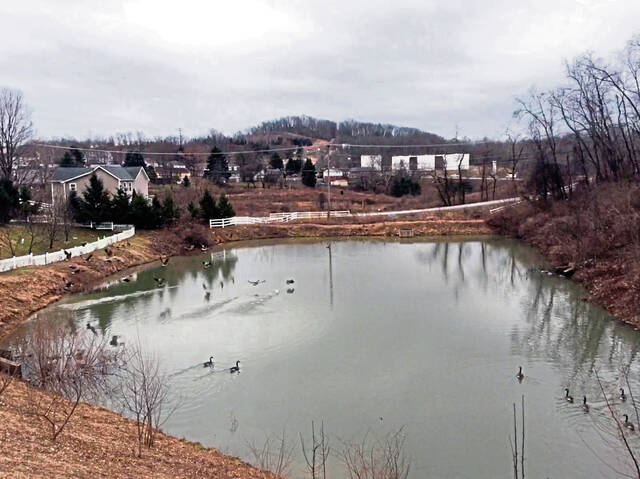https://triblive.com/local/westmoreland/murrysville-hears-pitch-for-stormwater-fee-to-help-fund-state-mandated-projects/
Murrysville hears pitch for stormwater fee to help fund state-mandated projects

The management and control of stormwater in Pennsylvania has become more heavily regulated in the past two decades.
In towns with a municipal separate storm sewer system, known as MS4, compliance with those regulations has continued to increase in cost. State environmental officials require MS4 permit-holders to meet annual goals for pollution reduction in their stormwater, but they have provided no funding to match the mandates.
In many municipalities, this unfunded mandate has led to the creation of a stormwater authority that bills residents and businesses based on the amount of impervious surface, or runoff area, on their property.
In Murrysville, officials received a preview of what that may look like through a recent presentation by the engineering firm Lennon Smith Souleret.
“We have found that, in terms of the demand placed on the system, stormwater is little different from a utility,” said Shawn Wingrove of Lennon Smith Souleret. “Funding it based on real estate property tax is not an equitable way to do it.”
In place of a uniform property tax increase, Wingrove proposed the same type of general fee structure already in place in nearby communities, such as Monroeville, which has had a stormwater fee for several years.
“Their fee to the average single-family homeowner is $10 per month,” Wingrove said.
That monthly fee is calculated by estimating the average amount of impervious surface on a typical residential property and determining what Wingrove called an Equivalent Residential Unit (ERU). The LSSE study recommended setting one ERU in Murrysville at an average of 5,800 square feet of impervious surface.
More-specific calculations would be done on large lots of three or more acres, and commercial structures’ impervious surface would be calculated individually.
Wingrove noted, “It really varies. A big property could have an annual fee reaching into five figures.” He added, however, that many commercial properties are eligible for a credit on their fee, “especially if they have been developed in the past few years with some stormwater controls already in place.”
Similarly, homeowners could receive a credit for installing features such as a rain garden or rain barrel.
The study estimated that Murrysville spends about $965,000 annually on stormwater-related mandates. If the stormwater fee is implemented, Wingrove said the average homeowner would pay about $7 per month.
“The intent is to relieve the burden of having to use the municipality’s general fund for these state-mandated stormwater projects,” he said. “The fee is directly relatable to the demands each property owner places on the system. It applies to everyone. No one is exempt, because everyone is served by the stormwater system.”
Next door in Delmont, borough officials have already created a stormwater authority that imposes a $10 monthly fee on the average homeowner.
Bob Walczer, who along with his wife, Julie, recently won election to Delmont council, disagrees with the entire idea of the authority.
“We haven’t paid it yet. To me, it’s not a fee, it’s a tax,” Walczer said. “We’re 2.1 square miles — we’re very small. The largest source of pollution in our stormwater is runoff from Route 66, a state road. We have trucks, commercial vehicles, heavy equipment coming down that road every day dropping oil, diesel, antifreeze. All of that is going into Delmont’s stormwater and the state is not providing any funding to address it.”
Walczer also criticized the lack of exemptions, saying it can place a heavy burden on some groups.
“Our fire department always needs money, and our churches operate on small budgets,” he said. “They all have large parking lots. So now we are going to tax them for it?”
Copyright ©2026— Trib Total Media, LLC (TribLIVE.com)
